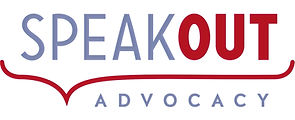Individual Advocacy
Individual advocacy is one-on-one support. It helps a person with disability be treated fairly and get what they need in education, healthcare, work, and daily life.
Why Individual Advocacy Matters
-
It helps people deal with urgent or serious issues, especially if they don’t have support.
-
It gives people a stronger voice when they need help most—like facing discrimination or abuse.
-
Advocates work on your side, helping you speak clearly, explore your choices, and make decisions with respect and care.
Parts of Individual Advocacy
1. Speaking Up for Rights
Advocacy ensures a person with disability is treated fairly in places like school, work, and healthcare. It helps them understand and speak up about their rights.
2. Navigating Systems
An advocate supports someone to understand and access services, benefits, or help they need, like NDIS, healthcare, or education support.
3. Providing Support
Advocacy may be provided by the person themselves or someone else—such as a family member, friend, or professional advocate.
4. Problem-Solving
The advocate helps with specific issues such as discrimination, denial of services, or barriers to access.
5. Legal and Social Protection
Advocacy ensures that disability laws and policies are followed and that an individual's rights are defended in practical situations.

Examples of Individual Advocacy
-
An Advocate providing information to assist someone who would like to advocate for themself.
-
An Advocate supporting someone appeal a denied benefit.
-
An Advocate attending Court with someone to assist them and support them through the legal process.
-
An Advocate can assist a person that is experiencing abuse, neglect or discrimination to resolve the issue.
Individual advocacy empowers people to assert their rights and ensures they are treated with dignity and respect.
Who can use Speak Out?
People with all types of disabilities as stated in the Disability Services Act (Tas). That is if you have a disability that:
-
Is permanent or likely to be permanent, and;
-
The disability causes you to have difficulties with communication, learning or mobility, and;
-
You need support services to assist you.
Speak Out may not be able to provide support if
-
The advocate thinks there is another service that is better able to meet your needs;
-
There is not an advocate with the time available when you need support.
If this is the case, we will refer you to the service that is best able to support you.
All emails relating to advocacy referrals can be directed to: intake@speakoutadvocacy.org
